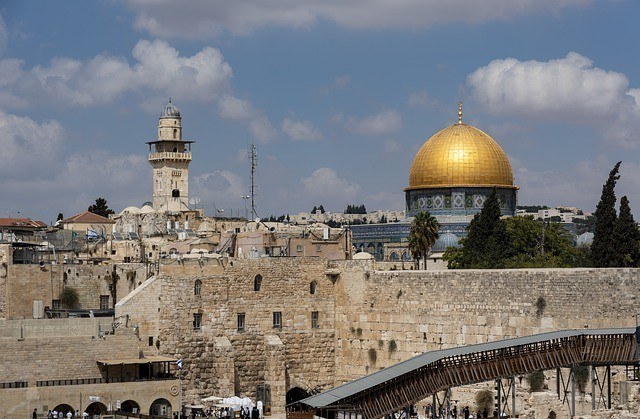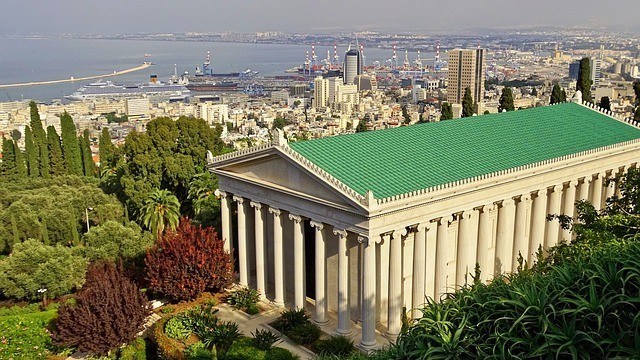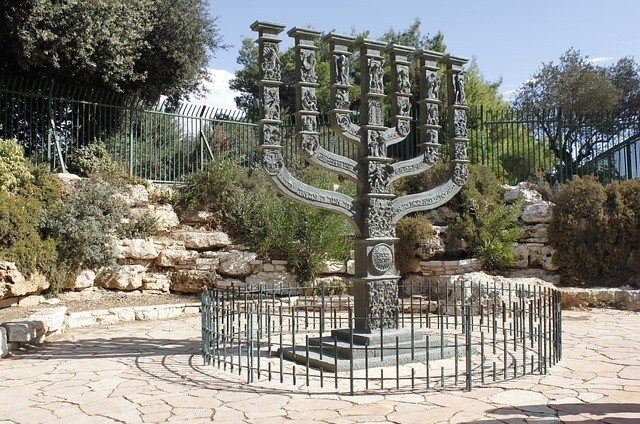
Hebrew is more than just a language. We can hardly explain the phenomenon. As the Biblical Language, Hebrew ingrains deeply in everyone, a religious and cultural foundation in its speakers first before the more technological and artistic side. What is the Hebrew Language’s intrinsic value to you as a person?
Its survival of a 2000-year hiatus, the Holocaust, Middle East wars, and several attempts to quench its burning fire are only proof that anyone who enjoys the value of this language is truly privileged and enviable. Find out more.
What Is the Hebrew Language’s Intrinsic Value?
Hebrew has earned a lot of respect worldwide. Apart from being the Biblical Language, it shares roots with Arabic, Latin, and Phoenician languages. This gives one insight into the richness of its culture.
There is a special bond shared between two people who can speak a language. This bond is stronger between Hebrew speaking people, and it gives one a deeper connection with Israel and its people. This makes it easier to do business there, study abroad, go on vacation around the beautiful cities, benefit from the technology, and even live in Israel.
For a person intrigued by history, archaeology, artifacts, and culture, the Hebrew language is the best language to learn, and Israel is the best place to go.
History of the Hebrew Language and Culture
Hebrew is a Northwest Semitic Language. Its history dates back to the 10th century BCE, and it is reckoned as the language of the Israelites. Hebrew blossomed as a language in the Israel Kingdoms between 1200 to 586 BCE.
It started out as the archaic Biblical Hebrew or Paleo-Hebrew until the 6th century BC during which the Babylonian exile occurred. At this time, many Israelites had to learn Aramaic, which had become the official language.
[If you want to learn Biblical Hebrew online, read here my article on this topic.]
Before then, the Standard Biblical Hebrew was essentially the greater part of what was contained in the Bible. After the exile was the Persian period, where the books of Ezra and parts of Nehemiah were written. This ended in the 3rd century BC. After the Persian period came the Hellenistic and Roman periods, just before the time when the Temple in Jerusalem was destroyed.
Hebrew was found in the Dead Sea scrolls. However, by late antiquity, it was already extinct colloquially due to the exile, which made the Jews go into diaspora. Simon Bar Kockba led the Jews to a revolt, which they lost in 135 AD.
In the 19th century, Eliezer Ben-Yehuda joined the Jewish National Movement and played a key role in the revival of the language. Modern Hebrew was one of the main languages in Palestine in 1921. By 1948, it had become the official language of the recently formed State of Israel. It is the only example of a successful revival of a ‘dead language.’
[Interested in studying Modern Hebrew online? Read here my article on this topic!]
Today, about 9 million people speak the language. Other parts of the culture evolved as well. In ancient times, Israelites were nomadic. This could have had a deep influence on the language. They also had several livestock and farm produce with numerous examples seen in the Bible.

History of Israel and Hebrews
In Israel, before a monarchy was established, the Israelite land was divided among the twelve Hebrew tribes. A single leader, often referred to as a Judge, led this and he resolved any conflict that occurred. This period was from about 14th to 11th centuries BC. After the people grew tired of Judges, they wanted a king. The last Judge, Samuel anointed Saul to be the first King of Israel as a whole. He served for a while.
Then kings David and Solomon followed after which the kingdom became divided into Israel and Judah for several generations. Israel had ten tribes, and the capital was Samaria. Judah had two tribes, and the capital was Jerusalem. Hoshea was the last king of Israel, and the Assyrians defeated him. The Babylonians also defeated Zedekiah. Thereafter, there was a long period of gloom for the Hebrews, who became scattered all over the world.
Until the 1900s, Palestine was under the Ottoman Empire. By this time, the Zionist Movement had begun, and Jews wanted a land of their own. By the end of the Great War, the Ottoman Empire had collapsed, and Palestine became under British rule. Britain announced its support for the establishing of a Jewish state in 1917. Jews began migrating back to their homes. This led to many conflicts between the Arabs and the Jews. After the Jews declared themselves independent, an Arab-Israeli war took place, and several conflicts followed. The Jews emerged victorious. Up until today, the Jews still control almost every part of the Palestine land.
Relationship Between Classical and Modern Hebrew
This section effectively explores the differences and similarities in the relationship between Classical and Modern Hebrew.
Due to its more aged status, emerging in the 10th century BC, the Classical or Biblical Hebrew only has about 8,000 words in its vocabulary. This is in stark contrast to Modern Hebrew, birthed in the 19th century, which has over 100,000 words. Modern Hebrew is the state language of present-day Israel.
[Are you interested in a better understanding of the Hebrew Bible? Read here an interesting article on how you can learn Biblical Languages online.]
Classical Hebrew was used for centuries in religion, poetry, culture, and philosophy. However, it experienced a great decline in relevance until the Zionist movement came. Afterwards, Eliezer Ben-Yehuda, a lexicographer created the first Modern Hebrew dictionary.
Since classical Hebrew evolved into Modern Hebrew, there is some relationship between the two. However, comparative studies done between the two languages show that it would be quite challenging for one to communicate with another in them. Aspects of the language such as pronunciation, grammar, vocabulary have been significantly altered in the course of history.
An interesting similarity is seen in the morphology of both languages. Their words are formed in the same way from three consonant roots. The fundamental vocabulary of Modern Hebrew is derived from Classical Hebrew. Nouns and verbs that were in existence during those ancient times have not changed. However, due to technological advancements, new words have been added to Modern Hebrew.
The syntax for Classical Hebrew is in the VSO (Verb-Subject-Object) format, but that of Modern Hebrew is in the SVO (Subject-Verb-Object) format. Modern Hebrew syntax was standardized and made easier to read than the Biblical Hebrew.
Through constant exposure, most literate native speakers of Modern Hebrew can now read the Hebrew Bible without any fuss.

Culture of Modern Israel
Modern Israel culture includes the philosophy of the Zionist Movement as well as peculiar practices of two distinct populations, the Jews and the Palestine. Though modern, the cultural roots seep down to thousands of years in history.
Israel is the origin of Jewish culture. This includes literature, philosophy, poetry, mythology, mysticism, folklore, festivals, as well as religions such as Judaism and Christianity. Jerusalem and Tel Aviv are the main cultural pivots in Israel. Tel Aviv has been ranked as one of the best cities in the world. Nicknamed “The Non-stop City,” it is famous for its nightlife and fascinating beaches. Its population is second only to Jerusalem. Jerusalem is known for being a pilgrimage hub.
Israel has the highest number of museums per capita in the world. It has over 200 museums, and this has attracted millions of tourists. Some of these museums are found in major cities such as Jerusalem, Tel Aviv, Haifa, and Herzliya. The Tel Aviv based Israel philharmonic Orchestra features some of the most talented Jewish symphony players, and they have played at almost all venues throughout the country.
Another popular cultural feature in Israel is folk dancing. There are several dance companies, which exist for this purpose. The Batsheva Dance Company is greatly celebrated worldwide. The Habima National Theatre is one of the first Hebrew Language theatres. It is situated in Tel Aviv.
For the last four decades, Israeli Literature has enjoyed international recognition. Several Israeli writers made this possible. Literary pioneers such as Shmuel Yosef Agnon, Mosef Smilansky, David Shimoni, Yosef Brenner, and Jacob Fichman who were from the Second Aliyah, set the foundation for Israeli modern day literature.
Though Hebrew is the official language of Israel, as many as 83 languages are spoken all over the country. The Organisation for Economic Cooperation and Development (OECD), named Israel as the second most educated country in the world. This was contained in a report that was released in 2012.
Much of modern-day Israeli philosophy is found in the Bible with different references in the books of Psalms, Ecclesiastes, and Proverbs. A famous modern-day Israeli philosopher is Martin Buber, who is known for his philosophy of dialogue.
Israel has undergone rapid development since its creation. It already ranks fifth among the most innovative countries. This is according to the Bloomberg Innovation Index. The country is blessed with thousands of scientists, technicians, and researchers. Drip irrigation was invented in Israel.
Soccer dominates the sports in Israel. However, Basketball and Tennis are still a favorite sport. Politically, Israel is the only functional democracy in the Middle East. This means that it is by far the safest country to visit.

Famous Israeli People
Israel is blessed with famous men, women, intellectuals & academics, musicians, sportspersons, leaders, media personalities, physicians, writers, etc. These people have made a positive impact worldwide. A few of the endless examples include:
Shmuel Yosef Agnon
Shmuel Yosef Agnon is famous for being the only one who won the Nobel Prize for Literature in Hebrew and Israel Literature as a whole. He was also a central figure of Modern Hebrew fiction. His works addressed the conflict between the traditional Jewish way of life and modern culture. This led to scholars making extensive academic research on his works.
Agnon says his primary influence was from stories in the Hebrew Bible. He received both the Bialik Prize for Literature and the Israel Prize for Literature twice. He wrote several novels, short stories, and anthologies. On February 17, 1970, Agnon died in Jerusalem at the age of 81. His archives were afterwards transferred to the National Library in Jerusalem.
Gal Gadot
The Israeli Actress and model was born in 1985. She won Miss Israel in 2004 at the age of 18. She also took part in the Miss Universe competition that year. She served in the military for two years. Thereafter, she studied Law and International Relations at IDC Herzliya College.
While she earned a role in Fast & Furious movie in 2009, she rose to fame by portraying Wonder Woman, which covers several movies. She influences several brands such as Gucci, Huawei, Vine Vera Skincare, Jaguar Cars, etc. she has won several awards in her career across the industries. Time’s annual list included her in its 100 Most Influential People in the World and she is among the highest-paid Actresses worldwide.
Benny Hinn
Toufik Benedictus “Benny” Hinn is an Israeli Televangelist, Author, and Speaker who has exemplified faith healing and carried out several crusades in major cities. He overcame a severe stutter in his earlier years. He often cited Kathryn Kuhlman, who regularly carried out miracle services as a major influence in his life. He boasts the largest healing service recorded in history, with about 7.3 million people in attendance. Benny Hinn has written many Christian books. He has a thirty-minute TV Program, This Is Your Day as one of the most-watched Christian programs.
Benjamin “Bibi” Netanyahu
Benjamin Netanyahu is an Israeli Politician who has been the Prime Minister for the last 10 years. Apart from being a Politician, he is also a Diplomat, writer, Economic consultant, and marketing executive. The Tel Aviv native was born in 1949. He served as a combat soldier in the Israel Defence Forces for five years. He then studied at Massachusetts Institute of Technology, and later Harvard. He has served Israel in Ministerial roles such as Science and Technology, Finance, Foreign Affairs, Health, Communications, Housing, and Construction, etc.
Other notable names include Bar Rafaeli, Natalie Portman, Sue Bird, Gene Simmons, Uri Geller, Dan Shechtman, etc.
Putting It All Together
The Hebrew language has never been more important than it is today. Putting its history together and understanding its evolution over the centuries ensures that one has a unique, personal experience of Israel.
The journey of Israel and Hebrews up to the modern-day culture has been outlined. Likewise the relationship between Classical Hebrew and Modern Hebrew. The Hebrew language is a purified masterpiece. Just like diamond and gold, it has passed through the toughest situations and has come out with so much appeal and glitter. This is what the Hebrew Language is all about!